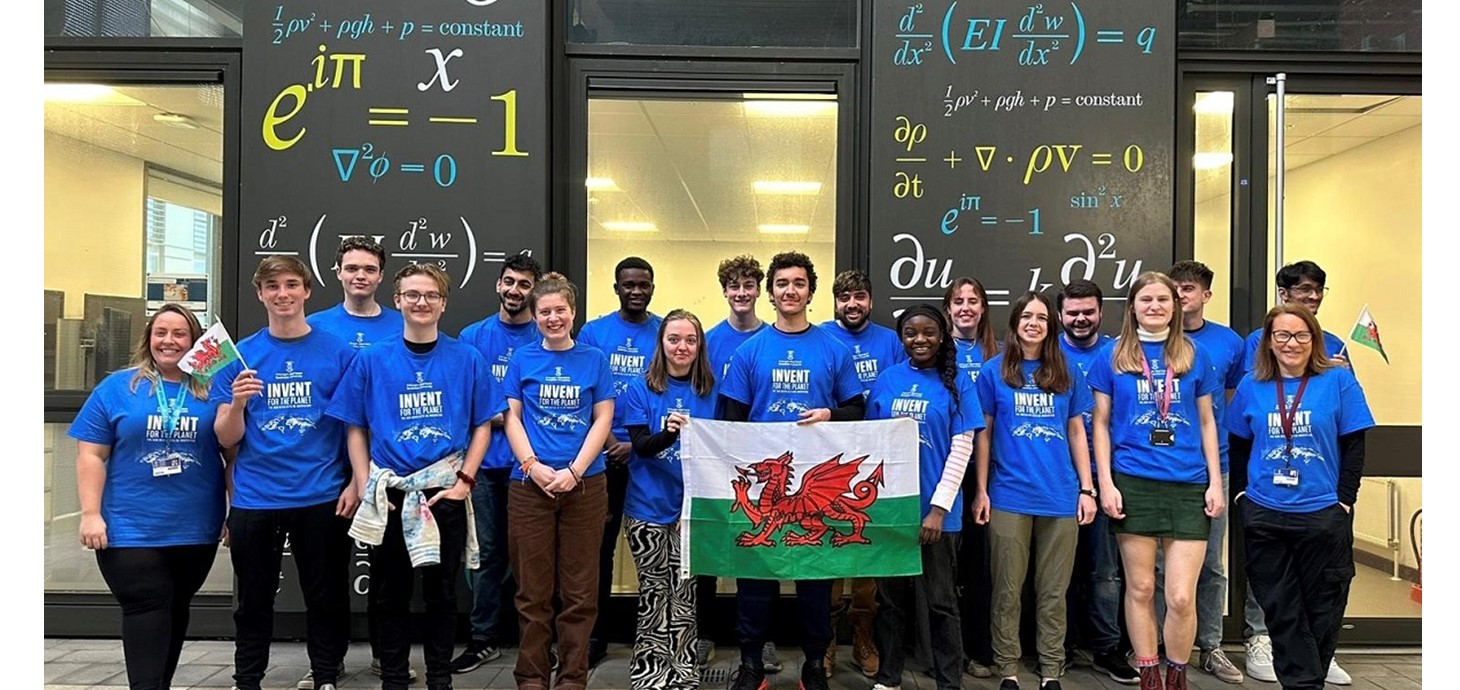
Picture: Swansea University Invent for the Planet teams. Each team had 48 hours to research their challenge, create a prototype and develop an elevator pitch which they present to a panel of judges.
A team of Swansea University students who have invented a pump that makes polluted river water safe to drink have reached the grand final of a worldwide design competition, which will take place in Texas in April.
The competition is called “Invent for the Planet”. Run by Texas A&M University, it was open to 21 participating universities in 15 countries around the world. Swansea was the only UK university invited to participate.
Students work in local teams and select one topic from a list of global challenges; this year’s list included access to clean water, temporary housing in disaster zones and reducing food waste.
Each team then has 48 hours to research their challenge, create a prototype and develop an elevator pitch which they present to a panel of judges.
Swansea fielded four teams in total. The winning team - called H2Grow – was made up of four students from engineering and physics. Fittingly for this worldwide competition, the H2Grow team were international, with two members - Alex Henson and Oli Leslie-Golding - from the UK and two - Rachel Simms and Matthew Coomes - from the US.
H2Grow are one of just six teams selected for the Grand Final, which takes place in Texas from 18-20 April. The others are from the USA, Pakistan, Thailand and Qatar. This is the second time in four years that a Swansea team has been selected for the final.
The team’s winning idea was a reverse-osmosis pump which can convert toxic river water into drinkable water for rural farming communities.
1.2 billion people worldwide still lack safe drinking water, according to the UN Sustainable Development Goals. Simple and affordable devices that remove pollution and make water cleaner are therefore essential.
During the competition the team produced an early prototype of the pump, which the judges thought had the potential to be a viable product. The University’s enterprise team, which has a strong track record in supporting student start-ups, will also be able to offer advice on developing the idea further.
Rachel Simms, a member of the H2Grow winning team said:
“I really appreciated how supportive everyone was, and the mentors were extremely helpful. I really enjoyed the opportunity to compete at Swansea and experience first-hand how collaborative everyone was”.
Abdulalhad Abdoulraouf, a member of one of the runner-up teams and a first-year mechanical engineering student, said:
“Invent for the Planet has developed my presentation skills and teamwork skills and helped me build my connections and networks. It is one of the most memorable experiences I have had since coming to Swansea University.”
The team’s success in this competition is another product of the flourishing partnership that Swansea University has built with leading universities in Texas, like A&M. The partnership also includes student exchange schemes and research collaborations in areas such as nanomedicine.
Dr Caroline Coleman-Davies, Swansea University’s lead for the Texas Strategic Partnership and co-organiser for Invent for the Planet, said:
“Texas A&M is an internationally renowned university with whom Swansea has a long-established relationship and Invent for the Planet gives our students a fantastic opportunity to work with students from other subjects, disciplines and year groups, as well as interact with participants and mentors from around the world. I am thrilled that a Swansea team has once again been selected for the global Grand Final in Texas where I am sure they will do themselves and Swansea proud!”
Kelly Jordan, Senior Entrepreneurship Officer at Swansea and co-organiser for Invent for the Planet, said:
“Invent for the Planet allows students to develop their entrepreneurial skills, put into practice the engineering and scientific knowledge they’ve learned during their studies at Swansea and prepare them to make a positive impact in the world. This is just one of the events that the enterprise team runs to help students develop their entrepreneurship skills and their final presentations demonstrate how much they can learn in just 48 hours.”
Nick Laird, an Engineers in Business Fellow who was one of the judges, said:
“The teams we saw at Swansea University for Invent for the Planet were excellent. They approached the subject of innovation in a fully rounded manner, considering many angles. In only a couple of days they came up with what seemed to be possible and credible concepts, with routes to market considered. They were bunch of very impressive individuals and their presentations showed the benefit of team working, in parallel with individual inputs”
This year’s event was sponsored by the Engineers in Business Fellowship. It was delivered by a cross-University team involving experts from Research, Engagement and Innovation Services, Academic Partnerships and from Engineering, Science and Geography.
The panel of judges included Swansea University academics and Dr Laura Baker, a Swansea graduate who now heads product development at Tata Steel UK.
Find out more about our partnership with Texas
